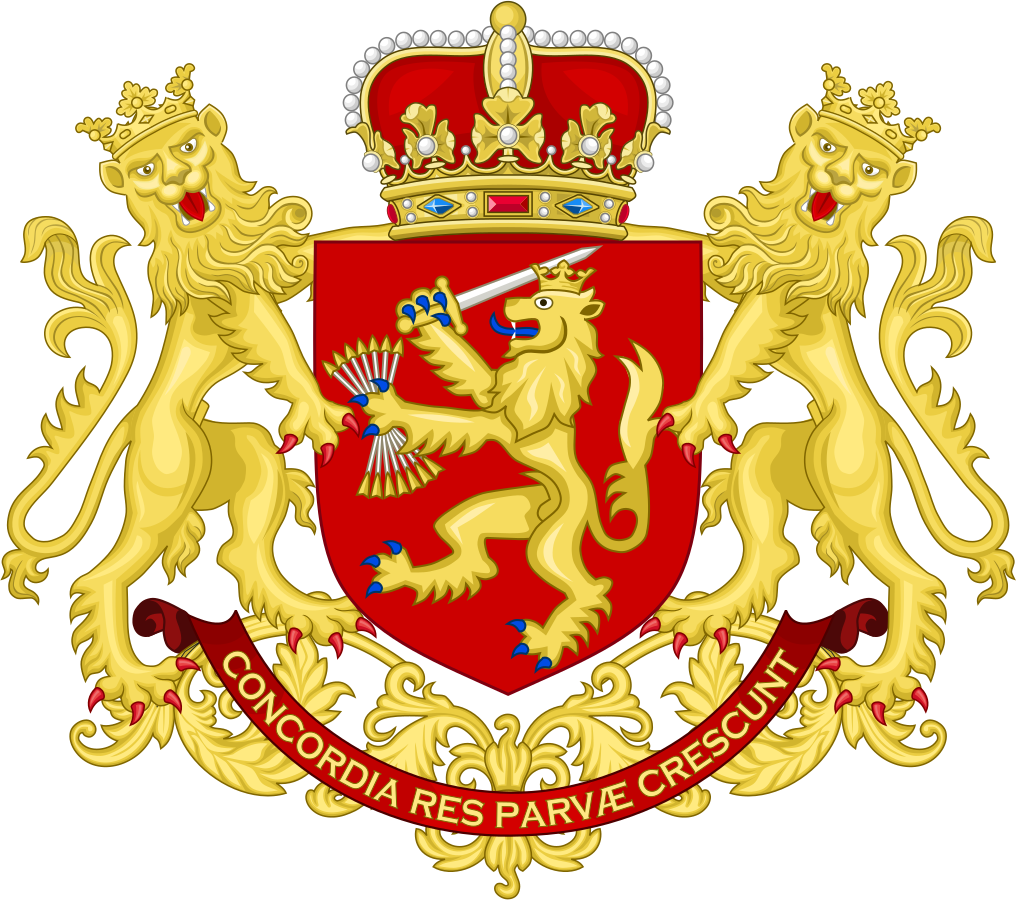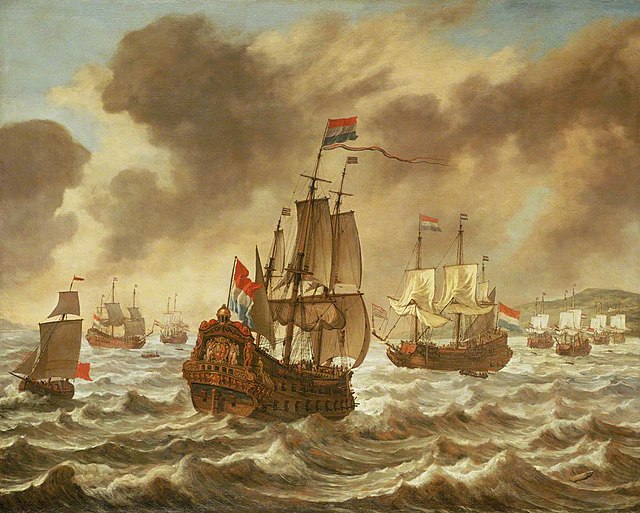Chapter 5 - the Rise and Fall of the Dutch Republic's Monetary Prowess
In our ongoing exploration of the fascinating world of monetary history, we focus on the Dutch Republic, a small but mighty nation that once wielded enormous financial influence. Chapter 5 of our series delves into the rise and fall of the Dutch Republic's monetary prowess, a story filled with innovation, ambition, and eventual decline.
Republic of the Seven United Netherlands
Republiek der Zeven Verenigde Nederlanden (Dutch)
1579–1795


Images courtesy of Katepanomegas
A Beacon of Economic Power
The Dutch Republic's Economic Ascendance:
The 17th century saw the Dutch Republic emerge as a financial powerhouse. Blessed with a strategic location, a strong maritime tradition, and a robust banking system, the Dutch Republic became the centre of global commerce. Amsterdam, in particular, became a bustling hub for trade, with the Amsterdam Stock Exchange paving the way for modern stock markets.

Image by Kaspar Karsen, Public domain, via Wikimedia Commons
Courtyard of the Amsterdam Stock Exchange, circa 1670
The Ingenious Tulip Mania
Tulip Mania: The Dutch Republic is also known for an infamous episode in financial history—Tulip Mania. In the 1630s, the price of tulip bulbs skyrocketed to absurd levels, creating an economic bubble that eventually bursts. This incident serves as a stark reminder of the dangers of speculative excess.

Image by JayHenry, CC BY-SA 3.0 https://creativecommons.org/licenses/by-sa/3.0, via Wikimedia Commons
Earl Thompson created a standardised price index for tulip bulb contracts. Thompson had no price data between February 9 and May 1; thus, the shape of the decline is unknown. The tulip market is known to have collapsed abruptly in February.
Founding the Dutch East India Company
Birth of the First Multinational Corporation: The Dutch Republic gave birth to the Dutch East India Company (VOC), considered the world's first multinational corporation. The VOC was granted a monopoly on Dutch spice trade and established colonies in Asia, symbolising Dutch economic might.

Image a Workshop of Michiel Jansz. van Mierevelt, Public domain, via Wikimedia Commons
The "United East India Company" or "United East Indies Company" (also known by the abbreviation "VOC" in Dutch) was the brainchild of Johan van Oldenbarnevelt, the leading statesman of the Dutch Republic.
The Fall of a Financial Empire
Decline of the Dutch Republic: The Dutch Republic's financial supremacy could not last forever. A series of wars, including the Anglo-Dutch Wars, strained the nation's resources. Additionally, financial innovations pioneered by the Dutch, such as modern banking and stock exchanges, were adopted by other nations, diluting their competitive advantage.

image from Reinier Nooms, Public domain, via Wikimedia Commons
Before the Battle of the Downs, October 31 1639, showing Tromp's flagship Amelia by Reinier Nooms, painted c. 1639.
Legacy in Modern Finance
Enduring Influence: Despite its eventual decline, the Dutch Republic's contributions to modern finance remain significant. Concepts like joint-stock companies, central banking, and stock markets, which originated during the Dutch Golden Age, continue to shape the global financial landscape.
Lessons from the Past
Relevance Today: The rise and fall of the Dutch Republic's monetary prowess offer invaluable lessons for our contemporary financial world. It underscores the importance of innovation, adaptability, and constant evolution to maintain economic leadership.
In Chapter 6, we leave behind the Dutch Republic's captivating financial journey, rich with triumphs and challenges. Our journey through history reminds us that even the most formidable economic powers can rise and fall. Stay tuned for Chapter 6, where we will explore another chapter in the annals of banking and finance, seeking wisdom from the past to navigate the present and future complexities.
Following the decline of the Dutch Republic's economic and colonial power, several major European powers vied for dominance in the global arena. One of the most notable to rise to prominence was the British Empire.
Leave a Reply